
Nyungwe Forest National Park: A Pristine Natural Wonderland
Nyungwe Forest National Park is a sprawling, verdant paradise located in the southwestern region of Rwanda. This ancient rainforest, covering over 1,000 square kilometers, is one of Africa’s oldest and most preserved, offering a unique glimpse into a world teeming with wildlife, exotic plants, and captivating landscapes. It is a haven for nature enthusiasts, adventure seekers, and those looking to disconnect from the hustle and bustle of daily life. Nyungwe is renowned for its rich biodiversity. The park is home to over 13 species of primates, including the famous chimpanzees and the rare Ruwenzori colobus monkeys, which can be seen in large groups. Bird watchers will be delighted by the presence of over 300 bird species, some of which are endemic to the region. The forest also boasts a variety of orchids, butterflies, and other flora and fauna that make it a living laboratory for scientists and a paradise for tourists. One of the highlights of visiting Nyungwe Forest National Park is the canopy walkway. Suspended 50 meters above the forest floor, this thrilling experience offers breathtaking views of the treetops and the valley below. For the more adventurous, there are numerous hiking trails that vary in difficulty and length, leading visitors through lush vegetation, waterfalls, and scenic viewpoints. The park also offers cultural experiences, where visitors can learn about the local communities and their traditional ways of life, adding a rich cultural dimension to the natural beauty of the forest.
Local tips in Nyungwe Forest National Park
- Hire a local guide for chimpanzee tracking for an informative and immersive experience.
- Wear comfortable hiking shoes and bring a rain jacket, as the weather can be unpredictable.
- Start your canopy walk early in the morning for the best views and fewer crowds.
- Carry enough water and snacks, especially if you plan to go on long hikes.
- Respect the local culture and engage with the community to enrich your visit.
Nyungwe Forest National Park: A Pristine Natural Wonderland
Nyungwe Forest National Park is a sprawling, verdant paradise located in the southwestern region of Rwanda. This ancient rainforest, covering over 1,000 square kilometers, is one of Africa’s oldest and most preserved, offering a unique glimpse into a world teeming with wildlife, exotic plants, and captivating landscapes. It is a haven for nature enthusiasts, adventure seekers, and those looking to disconnect from the hustle and bustle of daily life. Nyungwe is renowned for its rich biodiversity. The park is home to over 13 species of primates, including the famous chimpanzees and the rare Ruwenzori colobus monkeys, which can be seen in large groups. Bird watchers will be delighted by the presence of over 300 bird species, some of which are endemic to the region. The forest also boasts a variety of orchids, butterflies, and other flora and fauna that make it a living laboratory for scientists and a paradise for tourists. One of the highlights of visiting Nyungwe Forest National Park is the canopy walkway. Suspended 50 meters above the forest floor, this thrilling experience offers breathtaking views of the treetops and the valley below. For the more adventurous, there are numerous hiking trails that vary in difficulty and length, leading visitors through lush vegetation, waterfalls, and scenic viewpoints. The park also offers cultural experiences, where visitors can learn about the local communities and their traditional ways of life, adding a rich cultural dimension to the natural beauty of the forest.
When is the best time to go to Nyungwe Forest National Park?
Iconic landmarks you can’t miss
Akagera National Park Rwanda
Discover the rich biodiversity and stunning landscapes of Akagera National Park, Rwanda's premier destination for wildlife lovers and adventure seekers.
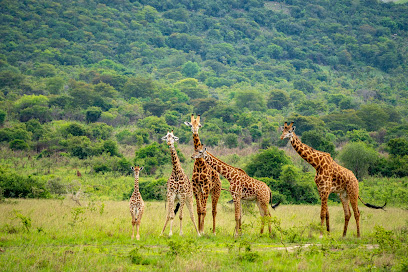
King's Palace Museum
Explore the King’s Palace Museum in Rwanda, a treasure trove of royal history and cultural heritage showcasing traditional artifacts and architecture.
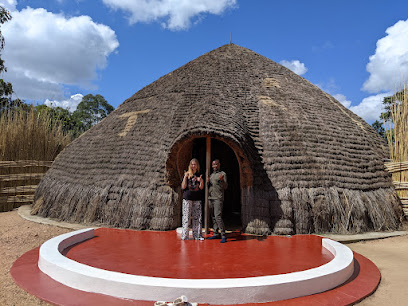
One&Only Nyungwe House
Discover the enchanting blend of luxury and nature at One&Only Nyungwe House, nestled in Rwanda's breathtaking Nyungwe Forest Reserve.

One&Only Gorilla's Nest
Experience luxury and adventure at One&Only Gorilla's Nest, your gateway to Rwanda's stunning wildlife and breathtaking landscapes.
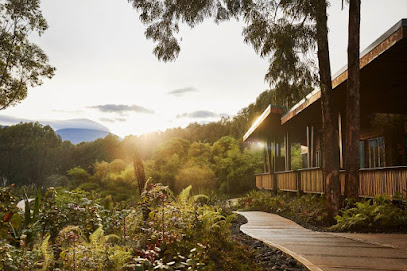
Kitabi Eco-Center
Experience the beauty and biodiversity of Rwanda at Kitabi Eco-Center, your gateway to Nyungwe National Forest's ecological wonders.
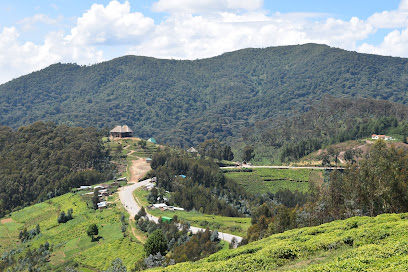
Gishwati-Mukura National Park and Biosphere Reserve
Explore the breathtaking Gishwati-Mukura National Park, a biodiverse haven in Rwanda perfect for nature lovers and adventure seekers alike.
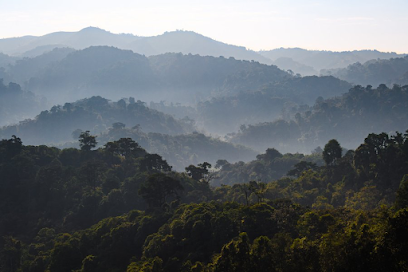
Nyungwe Nziza Ecolodge
Discover the serene beauty of Nyungwe Nziza Ecolodge, where luxury meets ecological sustainability in the heart of Rwanda's oldest national park.

Nyungwe Top View Hill Hotel
Discover tranquility and adventure at Nyungwe Top View Hill Hotel, a perfect base for exploring Rwanda's breathtaking Nyungwe National Park.

Gorilla Guardians
Experience the magic of mountain gorillas at Gorilla Guardians, a unique attraction in Rwanda that blends wildlife adventure with cultural immersion.
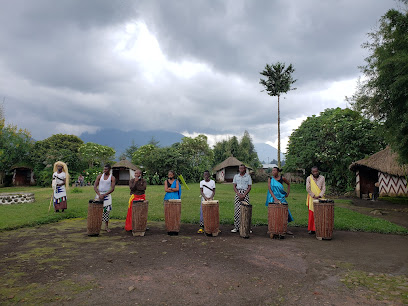
Nyungwe Forest Lodge
Discover the luxury of nature at Nyungwe Forest Lodge, a unique eco-friendly retreat in the heart of Rwanda's stunning rainforest.
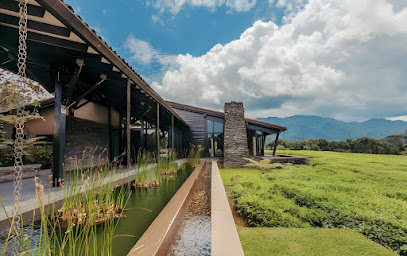
Chimpanzee Lodge
Discover the serene beauty of Chimpanzee Lodge in Gisakura, Rwanda, your perfect base for exploring Nyungwe National Park's vibrant wildlife.

Uwinka Visitor Center
Discover the breathtaking biodiversity of Nyungwe Forest at the Uwinka Visitor Center, your gateway to Rwanda's natural wonders.
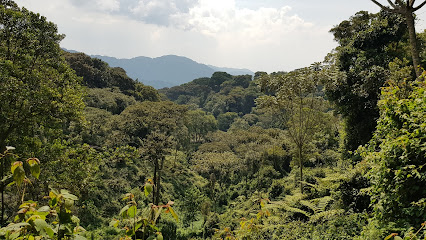
Nyungwe National Park Reception
Explore the breathtaking Nyungwe National Park, a natural paradise in Rwanda with lush rainforests, diverse wildlife, and unforgettable adventures.
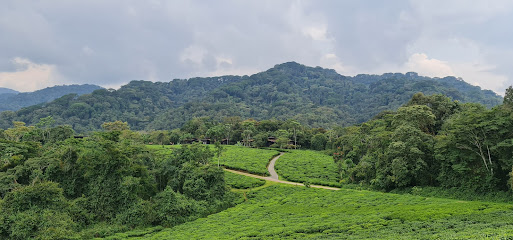
Nyungwe National Park Campsite
Explore the breathtaking Nyungwe National Park Campsite, a serene haven for nature lovers and adventure seekers in Rwanda's lush rainforest.
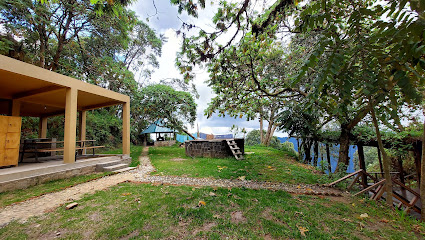
Nyungwe National Park
Explore the stunning landscapes and rich biodiversity of Nyungwe National Park, a top destination for nature lovers in Rwanda.
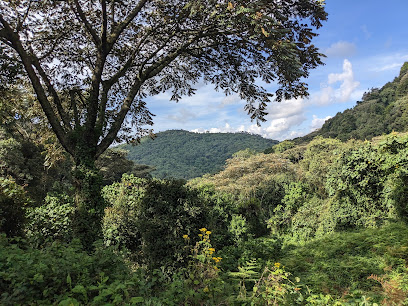
Unmissable attractions to see
Ethnographic Museum
Explore Rwanda's rich history and vibrant culture at the Ethnographic Museum in Butare, a must-see for every traveler.
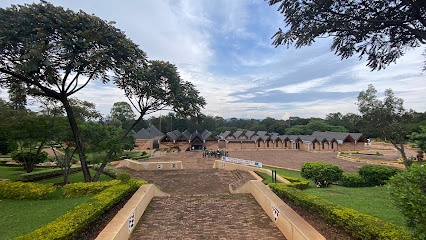
Kitabi Eco-Center
Explore the lush landscapes of Kitabi Eco-Center, an ecological park in Rwanda that highlights sustainability and biodiversity amidst the stunning Nyungwe National Forest.
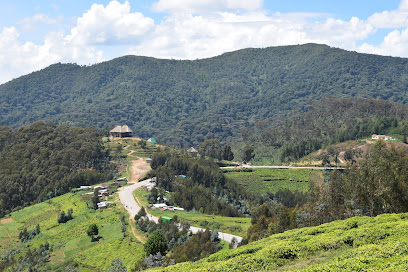
Kibeho Holy Land Tours (KHLT)
Discover the sacred beauty of Kibeho, Rwanda's Holy Land, a pilgrimage destination steeped in spirituality and breathtaking landscapes.
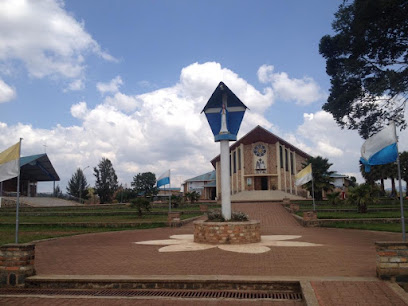
Canopy Walkway
Discover the breathtaking Canopy Walkway in Butare, Rwanda, where adventure meets nature in a stunning elevated experience.
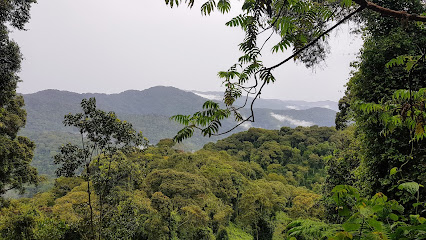
Gisakura Reception Center
Discover the serene beauty of Gisakura Reception Center, a lush park perfect for relaxation and nature exploration in Rwanda.
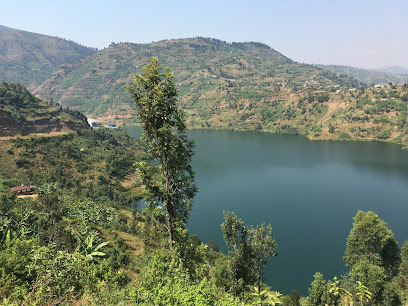
Nyungwe National Park Reception
Explore the stunning Nyungwe National Park, a lush rainforest in Rwanda teeming with diverse wildlife and breathtaking scenery.
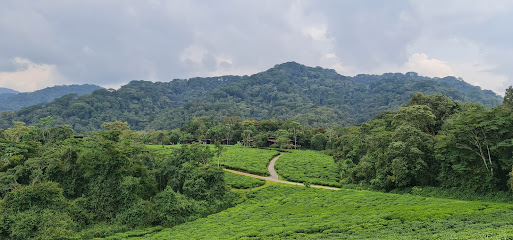
ImuHira Camp&CBT
Experience the beauty of nature at ImuHira Camp & CBT, where adventure meets relaxation in the heart of Rwanda.
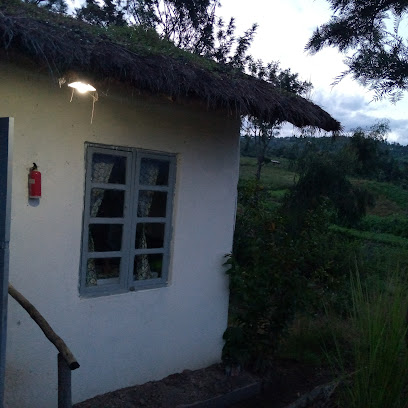
Coffee Tourism by KOPAKAKIDUTEGURE Coffee farmers Cooperative
Experience the essence of Rwandan coffee culture at KOPAKAKIDUTEGURE, where rich flavors and sustainable practices come together in Ruragwe.
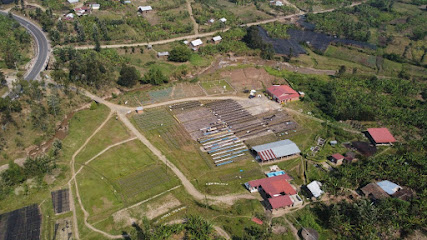
Kitabi Cultural Village (KCV)
Explore Kitabi Cultural Village, a captivating blend of cultural heritage and natural beauty in the heart of Mont Gabegi, Rwanda.
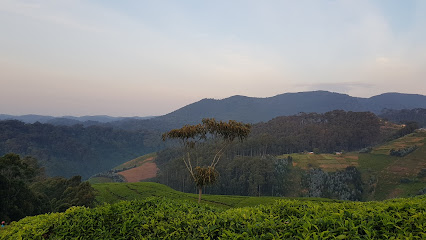
NYUNGWE ECOTOURISM CENTER
Explore the lush landscapes and diverse wildlife of Nyungwe National Park at the Nyungwe Ecotourism Center in Rwanda.
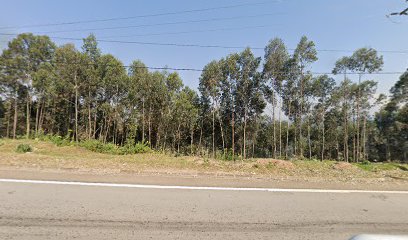
PINDURA
Discover the breathtaking trails and stunning vistas of Pindura, a premier hiking destination in the heart of Colline Ibanda, Rwanda.

Kamiranzovu Hiking Trail
Experience the beauty of nature on the Kamiranzovu Hiking Trail in Colline Ibanda, Rwanda, where adventure meets breathtaking landscapes.
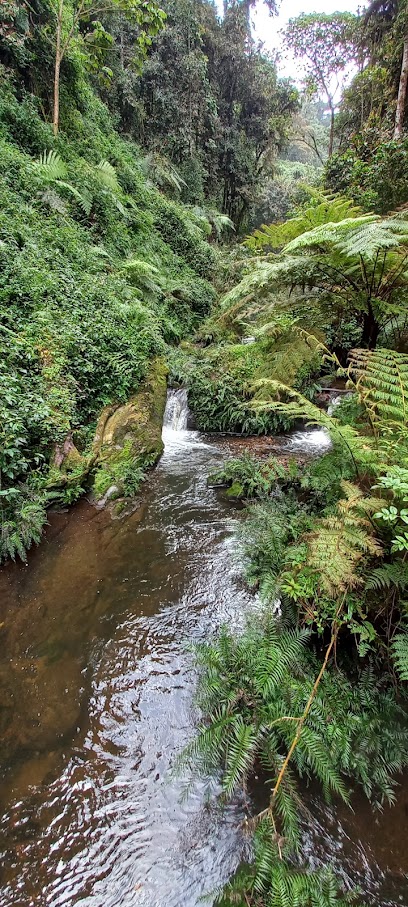
Bungwe Queen's Park/ MSC IBISUMIZI
Experience the tranquil beauty of Bungwe Queen's Park in Butare, Rwanda, a perfect escape for nature lovers and families seeking relaxation and local culture.
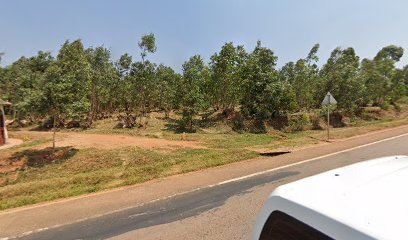
Gisanze center(agasantire ka Gisanze)
Experience the vibrant culture and authentic local life at Gisanze Center in Nshili, a must-visit tourist attraction in Rwanda.
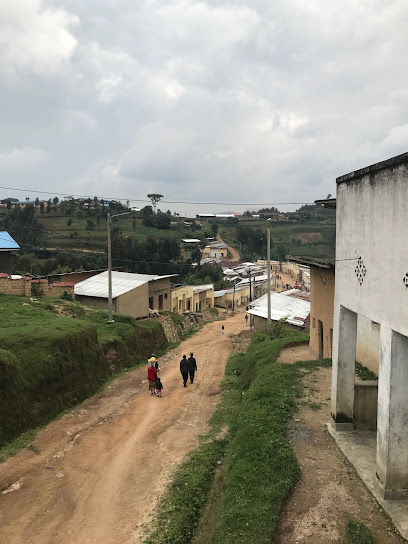
Iliza Houseboat
Discover the tranquil beauty of Iliza Houseboat in Gitesi, Rwanda, where stunning views and serene waters create an unforgettable escape.
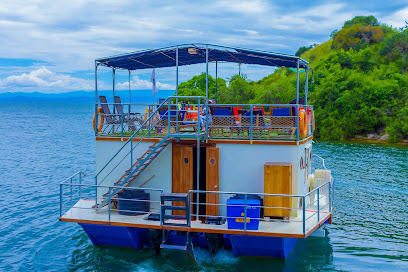
Essential places to dine
The Hut Restaurant and Boutique Hotel
Discover authentic Rwandan flavors at The Hut Restaurant & Boutique Hotel – where comfort meets culture in the heart of Kigali.
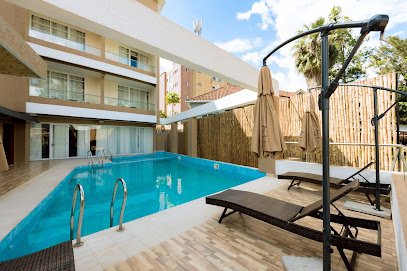
Repub Lounge
Discover the perfect blend of Rwandan flavors and international cuisine at Kigali's vibrant Repub Lounge - where great food meets lively ambiance.
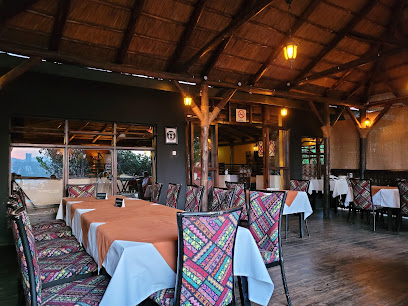
Nyungwe Forest National Park
Explore the lush biodiversity and breathtaking scenery at Nyungwe Forest National Park - a must-visit destination for nature lovers in Rwanda.
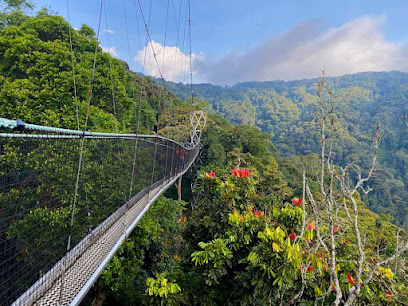
Soy Asian Table
Experience authentic South East Asian cuisine at Soy Asian Table in Kigali – where flavors come alive in an elegant dining setting.
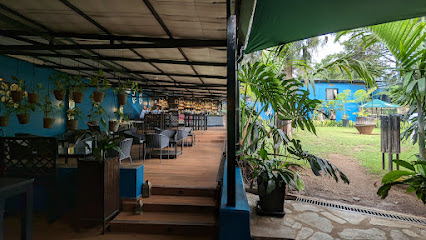
Filini Italian Restaurant
Discover authentic Italian cuisine at Filini Restaurant in Kigali - where every dish tells a story and every meal is an experience.
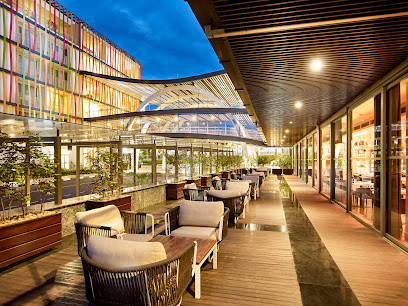
Nyandungu Restaurant/Bourbon Coffee
Discover Nyandungu Restaurant/Bourbon Coffee: A cozy retreat offering exquisite Rwandan coffees and delectable bites in the heart of Kigali.
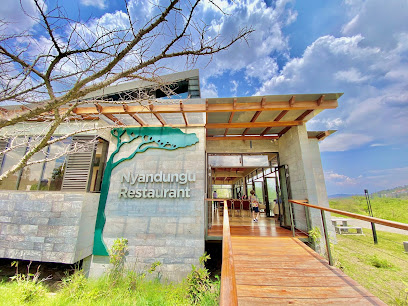
One&Only Nyungwe House
Experience unparalleled luxury amidst the breathtaking landscapes of Rwanda at One&Only Nyungwe House.

One&Only Gorilla's Nest
Experience luxury amidst breathtaking landscapes at One&Only Gorilla's Nest in Rwanda—your gateway to gorilla trekking adventures.
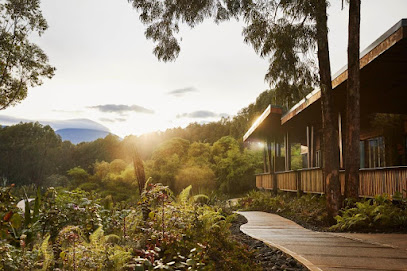
Nature Kigali
Discover the serene beauty of Nature Kigali—a boutique hotel offering stunning views, delicious vegan cuisine, and family-friendly amenities in Rwanda.
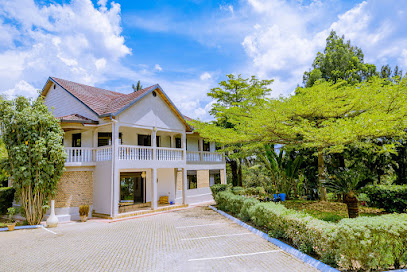
Virunga Lodge
Experience luxury amidst nature at Virunga Lodge, your gateway to Rwanda's breathtaking landscapes and gorilla trekking adventures.

Nyungwe Top View Hill Hotel
Discover serenity and adventure at Nyungwe Top View Hill Hotel - your gateway to Rwanda's breathtaking rainforest.

Nyurah
Experience fine dining at Nyurah in Kigali - where local ingredients meet international culinary excellence.

Zaaffran Indian Restaurant
Discover authentic Indian cuisine at Zaaffran Indian Restaurant in Kigali – where rich flavors meet warm hospitality.
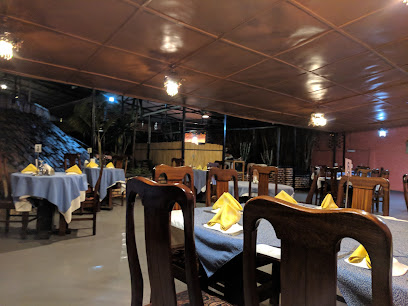
Wilderness Sabyinyo
Discover Luxury and Nature at Wilderness Sabyinyo Lodge in Rwanda's Volcanoes National Park - A Gateway to Adventure and Relaxation.

Singita Kwitonda Lodge
Experience unparalleled luxury at Singita Kwitonda Lodge amidst Rwanda's breathtaking landscapes and rich wildlife.
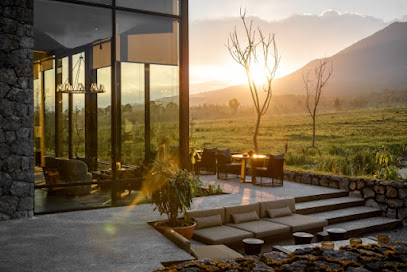
Markets, malls and hidden boutiques
Nyungwe Forest National Park
Explore the breathtaking Nyungwe Forest National Park, a biodiversity hotspot in Rwanda, offering stunning trails and unique wildlife encounters.
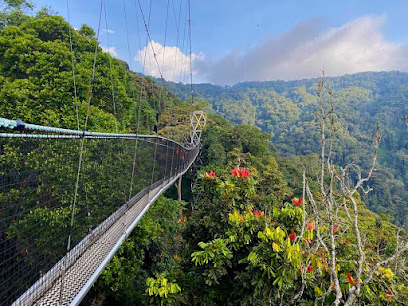
Roots Rwanda Online Shopping
Explore Roots Rwanda for a diverse range of electronics, unique souvenirs, and a taste of local culture, all in one convenient e-commerce platform.

Basket Store
Explore authentic Rwandan crafts at Basket Store, your go-to gift shop for unique handmade baskets in Kigali.
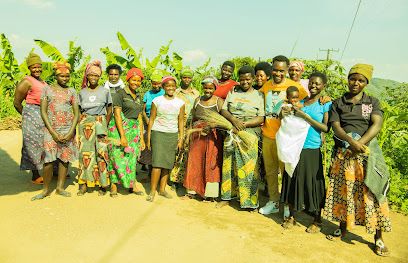
Boutique Nyabyenda
Explore Boutique Nyabyenda, a unique clothing store in Rwanda offering a blend of traditional and contemporary fashion, perfect for every tourist's wardrobe.

Boutique Umvaneza
Explore Boutique Umvaneza, Rwanda's premier clothing store, showcasing local craftsmanship and vibrant fashion trends.

Boutique Rutakamize
Discover the essence of Rwandan culture through fashion at Boutique Rutakamize, where local artistry meets modern style.

Boutique Alpha
Explore Boutique Alpha in Colline Rasano for unique fashion pieces that embody local culture and contemporary style.

Boutique Musanabandi
Explore Boutique Musanabandi in Rwanda for unique clothing that embodies local culture and craftsmanship.

Boutique Tamtam
Explore Boutique Tamtam in Rwanda for unique clothing and accessories that blend local craftsmanship with contemporary fashion.

Boutique Kayumba
Explore the essence of Rwandan fashion at Boutique Kayumba, where local culture meets unique style in a delightful shopping experience.

Boutique Bisengimana
Discover the vibrant essence of Rwandan culture at Boutique Bisengimana, where local fashion meets unique craftsmanship.

Boutique Dushime
Explore Rwanda's vibrant fashion scene at Boutique Dushime, where local craftsmanship meets contemporary design for a unique shopping experience.

Chez claire
Discover unique artisanal treasures at Chez Claire in Gakoni, where Rwandan culture comes alive through handcrafted goods.

Boutique Betty
Explore Boutique Betty for a unique shopping experience in Rwanda, featuring local fashion and authentic souvenirs.

Boutique Umubano
Explore the essence of Rwandan culture at Boutique Umubano, where fashion meets tradition in stunning designs and locally crafted garments.

Essential bars & hidden hideouts
Facebook Pub
Discover the lively atmosphere of Facebook Pub in Kigali, where local flavors meet international cuisine in a vibrant setting perfect for socializing.

Rangers Pub
Experience the vibrant atmosphere and delicious grilled cuisine at Rangers Pub, a must-visit bar in Kigali, perfect for a relaxing dining experience.
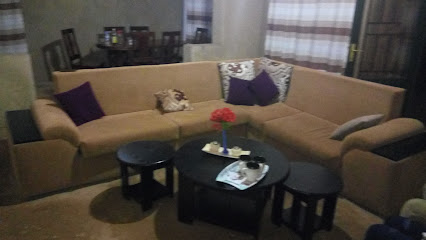
Piano Bar
Discover Kigali's vibrant nightlife at the Piano Bar, where live music and exquisite drinks create an unforgettable experience.
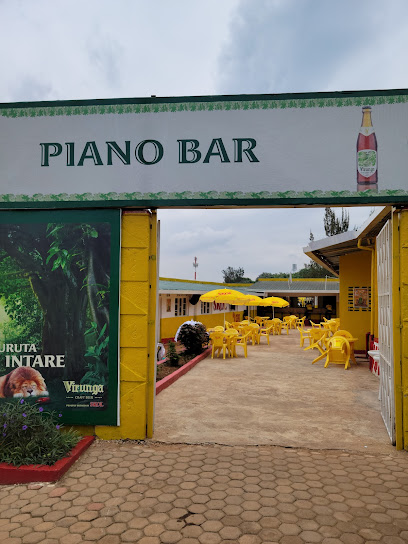
New Terasse Bar (Chez Vincent)
Experience the vibrant culture of Muhanga at New Terasse Bar (Chez Vincent), where local flavors and a friendly atmosphere await.
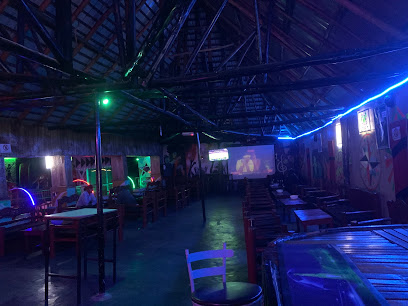
Umunyinya Bar & Restaurant
Discover Umunyinya Bar & Restaurant in Runda—where vibrant nightlife meets authentic Rwandan flavors.
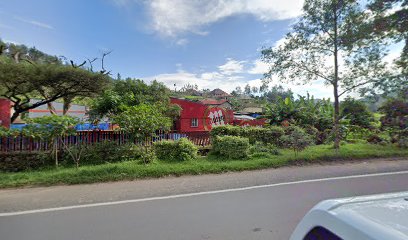
Umunara Bar
Discover the vibrant atmosphere of Umunara Bar in Kigali, where local culture meets refreshing drinks for an unforgettable experience.
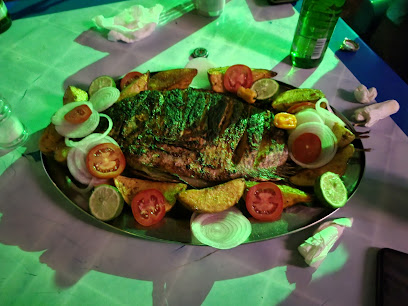
BAR IGISAZA CHEZ Ganza
Discover the lively ambiance and local flavors at BAR IGISAZA CHEZ Ganza, the perfect bar to unwind in Sheli, Rwanda.

La Terrasse Bar
Discover the essence of Rwandan cuisine at La Terrasse Bar, where grilled delights meet the vibrant atmosphere of Kigali.
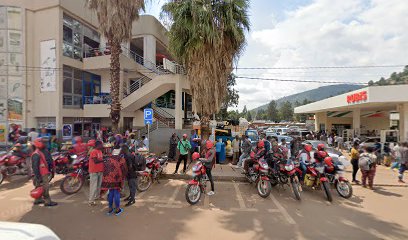
RUHIMBI LOCAL BAR
Discover the lively ambiance and local flavors at Ruhimbi Local Bar, a must-visit spot for tourists in Colline Giko, Rwanda.

BAR URUGANIRIRO
Experience the authentic taste of local grilling at Bar Uruganiriro in Sheli, where vibrant flavors meet a lively atmosphere.

Week end Bar
Experience the vibrant flavors of Kigali at Weekend Bar, a top-rated grill offering delicious local dishes in a lively atmosphere.
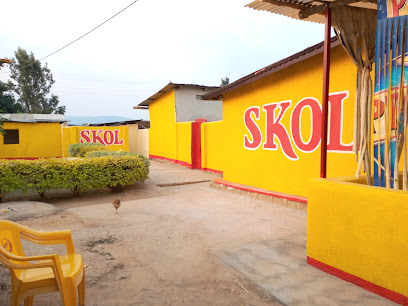
Pergola resto bar
Discover the lively ambiance of Pergola Resto Bar, where Rwandan flavors meet international cuisine in the heart of Kigali.
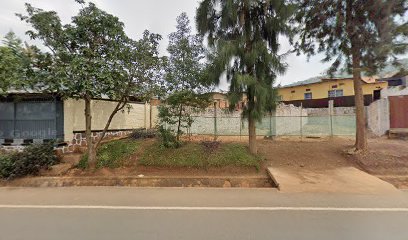
NGANDA NA BISO BAR
Discover the lively ambiance of Nganda Na Biso Bar, a perfect spot for enjoying local drinks and connecting with fellow travelers in Kigali.
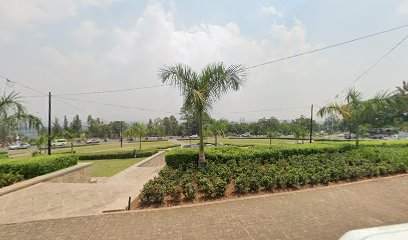
Gwiza bar
Explore the vibrant nightlife of Butamwa at Gwiza Bar, where local culture meets a lively atmosphere for an unforgettable experience.
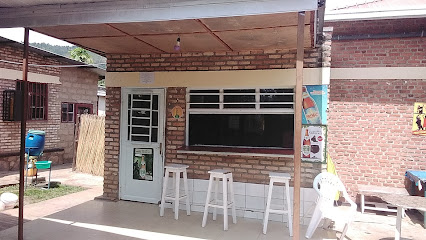
Local Phrases about Nyungwe Forest National Park
-
- HelloMuraho
[moo-rah-ho] - GoodbyeMurabeho
[moo-rah-beh-ho] - YesYego
[yeh-go] - NoOya
[oh-yah] - Please/You're welcomeKaze
[kah-zay] - Thank youMurakoze
[moo-rah-koh-zay] - Excuse me/SorryNdasaba
[ndah-sah-bah] - How are you?Amakuru?
[ah-mah-koo-roo?] - Fine. And you?Ni meza. Nawe?
[nee meh-zah. nah-way?] - Do you speak English?Mwakoresheje ikinyarwanda?
[mwah-kor-eh-sheh-jay ee-kee-nyah-rwan-dah?] - I don't understandNtazi
[uhn-tah-zee]
- HelloMuraho
-
- I'd like to see the menu, pleaseNifuza kumenya menu, cyane
[nee-foo-zah koo-mehn-yah mehn-oo, chyah-neh] - I don't eat meatSi neza ibiryo byo mu mugi
[see neh-zah ee-beer-yoh byoh moo moo-gee] - Cheers!Mwaramutse!
[mwah-rah-moot-seh] - I would like to pay, pleaseNifuza kugurisha, cyane
[nee-foo-zah koo-goo-ree-shah, chyah-neh]
- I'd like to see the menu, pleaseNifuza kumenya menu, cyane
-
- Help!Ubutware!
[oo-boot-wah-ray] - Go away!Jya ugera!
[jah oo-geh-rah] - Call the Police!Mwicuruzire Polisi!
[mwee-choo-roo-zee-reh poh-lee-see] - Call a doctor!Mwicuruzire dokotere!
[mwee-choo-roo-zee-reh doh-koh-teh-reh] - I'm lostNdi mw'ishure
[ndee mwee-shoo-reh] - I'm illNdi mugabane
[ndee moo-gah-bah-neh]
- Help!Ubutware!
-
- I'd like to buy...Nifuza kuvugana...
[nee-foo-zah koo-voo-gah-nah] - I'm just lookingNzikoze gukora ubufite
[n-zee-koh-zeh goo-koh-rah oo-boo-fee-teh] - How much is it?Ni ikihe?
[nee ee-kee-hay?] - That's too expensiveNi yarambwiye cyane
[nee yah-rahm-bwee-yeh chyah-neh] - Can you lower the price?Mwemereze kugaragaza isanamu
[mweh-meh-reh-zeh koo-gah-rah-gah-zah ee-sah-nah-moo]
- I'd like to buy...Nifuza kuvugana...
-
- What time is it?Saa ngapi iyi?
[sah nah-gah-pee ee-yee?] - It's one o'clockNi saa y'imwe
[nee sah ee-mweh] - Half past (10)Imwe n'igice
[ee-mweh n-ee-jee-chay] - MorningMubiri
[moo-bee-ree] - AfternoonMugitondo
[moo-gee-ton-doh] - EveningMugoroba
[moo-go-roh-bah] - YesterdayEjo
[eh-joh] - TodayEse
[eh-seh] - TomorrowEjo
[eh-joh] - 1Rimwe
[ree-mweh] - 2Kabiri
[kah-bee-ree] - 3Gatatu
[gah-tah-too] - 4Kane
[kah-neh] - 5Gatanu
[gah-tah-noo] - 6Gatandatu
[gah-tahn-dah-too] - 7Kagatandatu
[kah-gah-tahn-dah-too] - 8Kumwe
[koom-weh] - 9Icyenda
[ee-chyen-dah] - 10Icyenda cumi
[ee-chyen-dah choo-mee]
- What time is it?Saa ngapi iyi?
-
- Where's a/the...?Aho ari...?
[ah-hoh ah-ree?] - What's the address?Icyo akeka?
[ee-choh ah-keh-kah?] - Can you show me (on the map)?Mwemereze kundika (ku mapi)?
[mweh-meh-reh-zeh koon-dee-kah (koo mah-pee)?] - When's the next (bus)?Igihe cy'icyo gisata?
[ee-gee-heh chee-chee-oh gee-sah-tah?] - A ticket (to ....)Ingingo (ku ....)
[een-geen-goh (koo ....)]
- Where's a/the...?Aho ari...?
History of Nyungwe Forest National Park
-
Nyungwe Forest, one of Africa's oldest rainforests, has existed for millions of years. Its unique flora and fauna have evolved over centuries, creating a rich biodiversity that is unparalleled. The forest has been a natural habitat for various species that have thrived in its dense, lush environment.
-
The forest has been home to indigenous communities for thousands of years. The Twa people, one of Rwanda's oldest ethnic groups, have a deep-rooted history with Nyungwe. They have lived in harmony with the forest, relying on its resources for their livelihood and cultural practices.
-
During the late 19th and early 20th centuries, Nyungwe Forest came under European colonial influence. The Germans were the first to colonize Rwanda, followed by the Belgians. These colonial powers initiated the first formal efforts to explore and document the forest's vast biodiversity.
-
After Rwanda gained independence in 1962, the government began to recognize the ecological importance of Nyungwe Forest. Conservation efforts were ramped up in the 1970s and 1980s, with the establishment of various programs aimed at protecting the forest's unique ecosystem.
-
In 2004, Nyungwe Forest was officially designated as a national park by the Rwandan government. This monumental decision marked a significant step in the conservation of this ancient rainforest, ensuring its protection and preservation for future generations.
-
Nyungwe Forest National Park has become a premier destination for eco-tourism. The park offers a range of activities, including canopy walks, chimpanzee tracking, and bird watching. These initiatives not only promote conservation but also provide economic benefits to local communities.
Nyungwe Forest National Park Essentials
-
Nyungwe Forest National Park is located in the southwestern region of Rwanda. The nearest international airport is Kigali International Airport, approximately 225 kilometers away. From Kigali, you can hire a private car or join a guided tour that includes transportation. The journey typically takes around 5 to 6 hours by road, passing through scenic landscapes and rural areas.
-
Within the park, transportation options include guided tours, which often provide 4x4 vehicles for navigating through the forest. For those preferring public transport, local buses and minibuses (matatus) can take you to nearby towns like Huye or Rusizi, from where you can hire a taxi to the park. Renting a car in Kigali and driving to the park is also an option, but ensure the vehicle is suitable for rough terrain.
-
The official currency in Rwanda is the Rwandan Franc (RWF). Credit cards are accepted in some lodges and hotels within the park, but it is advisable to carry cash, especially for entrance fees, local vendors, and tips. ATMs are available in Kigali and other major towns, but may be scarce near the park, so withdraw sufficient cash before heading to Nyungwe.
-
Nyungwe Forest National Park is generally safe for tourists. However, standard precautions should be taken. Avoid walking alone at night and keep personal belongings secure. Be cautious of wildlife and follow the guidelines provided by park authorities. There are no high-crime areas targeting tourists specifically within the park, but always stay vigilant.
-
In case of emergency, dial 112 for immediate assistance. The park has its own ranger stations and first aid facilities. It is strongly recommended to have travel insurance that covers medical emergencies and evacuation. For minor health issues, there are medical clinics in nearby towns like Cyangugu and Huye.
-
Fashion: Do wear comfortable, breathable clothing suitable for hiking, and bring rain gear. Avoid bright colors that may attract insects. Religion: Do respect local customs and traditions. Public Transport: Do be polite and patient when using public transport. Don't expect strict adherence to schedules. Greetings: Do greet locals with a handshake and a smile. Eating & Drinking: Do try local Rwandan cuisine and be open to new flavors. Don't refuse food offered by locals, as it may be considered impolite.
-
To experience Nyungwe Forest National Park like a local, consider visiting the nearby tea plantations for a unique cultural experience. Engage with park rangers and guides, as they have extensive knowledge about the flora and fauna. Don't miss the Canopy Walkway for an aerial view of the forest. Participate in a chimpanzee trekking tour for an unforgettable adventure.
Trending Landmarks in Nyungwe Forest National Park
-
Akagera National Park Rwanda
-
King's Palace Museum
-
One&Only Nyungwe House
-
One&Only Gorilla's Nest
-
Kitabi Eco-Center
-
Gishwati-Mukura National Park and Biosphere Reserve
-
Nyungwe Nziza Ecolodge
-
Nyungwe Top View Hill Hotel
-
Gorilla Guardians
-
Nyungwe Forest Lodge
-
Chimpanzee Lodge
-
Uwinka Visitor Center
-
Nyungwe National Park Reception
-
Nyungwe National Park Campsite
-
Nyungwe National Park
Nearby Cities to Nyungwe Forest National Park
-
Things To Do in Cibitoke
-
Things To Do in Butare
-
Things To Do in Kibuye
-
Things To Do in Kayanza
-
Things To Do in Muhanga
-
Things To Do in Ngozi
-
Things To Do in Muramvya
-
Things To Do in Kirundo
-
Things To Do in Gisenyi
-
Things To Do in Bujumbura
-
Things To Do in Rubavu
-
Things To Do in Nyamata
-
Things To Do in Kigali
-
Things To Do in Ruhengeri
-
Things To Do in Muyinga










